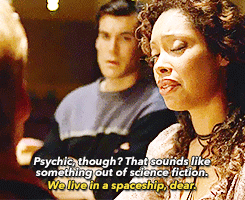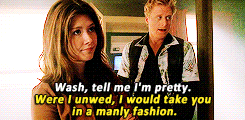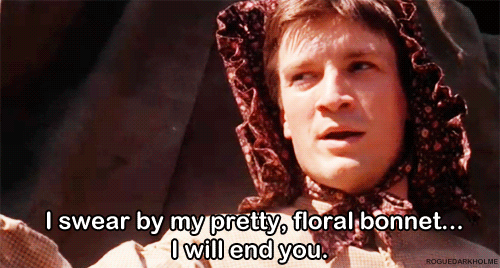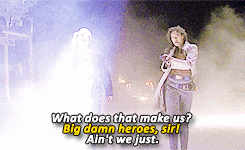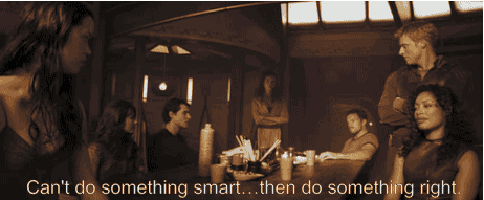Many of the people with whom I’ve shared both aspects of my life are surprised by the dichotomy. I aspire to being a best-selling writer, and yet work as a professional scientist. I take writing courses and attend cons, and yet got my degree in engineering. Friends on both sides of my life have told me that it’s weird that I can do both. After all, everyone knows that scientists are analytical, left brained, and writers are creative, right brained. You simply can’t do both. Well no, clearly you can. But I can see where they are coming from given how often scientists are miss represented in fiction.
Sometimes it’s as simple as factual inaccuracies. Those I can forgive. After all, who is to say that the fictional world works with exactly the same rules we contend with? However, I have a much harder time when it is clear to me that the author didn’t bother to take the time to understand how scientists think and view the world. For me, a character not feeling “real” places huge amounts of strain on my suspension of disbelief. So, in the interest of better writing all around, let me share with you four of the things that I’ve noticed “right brainers” often get wrong.
1. Science is BOTH a Body of Knowledge and a Way of Thinking…
The extent of scientific knowledge that humanity has managed to accumulate is mind boggling. Though people tend to think of science as one big thing, it’s not. Botany, chemistry, anatomy, rocket science, robotics, medicine, programming, all the flavors of engineering, and dozens of other specialties — it’s all science. I’ve seen plenty of fictional scientists who seem to know everything. That’s bogus. Sure, a scientific education is designed to instill a baseline of knowledge across a broad spectrum of topics. However, at some point (usually in college if not sooner) scientists tend to hone in on a very narrow slice of the spectrum and specialize. It’s not uncommon for a pure scientist to devote their entire lives to researching weight loss, looking for exoplanets, or working on ways to improve human-computer interactions. Though those may seem to be broad topics, and they are, they are each only one “book” in the library of scientific inquiry.
However, “science” is also a lens through which scientists and engineers are trained to view the world. That training gives its students the discipline and tools needed for problem solving and discovery. It also instills certain core beliefs. Fundamental to any of the sciences is the idea that the world works by following a set of rules. We may not understand those rules right now, but we can and should discover them through methodical observation and experimentation. Second is the belief in the need for ideas to be challenged and reviewed by peers. A single experiment or study doesn’t mean a thing until it is reproduced and verified independently. This goes hand in hand with the idea of intellectual integrity, which is sacred within the scientific community. Finally, the training of a scientist is designed to instill a certain degree of precision and attention to detail. Many scientific discoveries throughout history were made because something unexpected happened and the researchers were observant enough to notice the trend.
As writers, we need to ensure we cover science in all its aspects — both as a body of knowledge and a point of view. The first requires that we research our character’s specialties thoroughly enough that we don’t make major mistakes and break the illusion. I’ve found it helpful to consult with experts as necessary. Luckily, there are many scientists and engineers who are also fans of fiction, so it’s easy enough to find volunteers. Secondly, we must take care to ensure that we capture how a scientist is trained to think and view the world. We also need to know our character’s specialties, and whether they view themselves as a pure scientist (the sort who loves knowledge and discovery for its own sake) or an applied scientist (those who find value in doing something with their knowledge). Finally, we need to decide if we want them to be a generalist or a master of a single specialty. I’ve seen every combination work well, but it’s a significant decision that must be considered carefully.
2. Stereotypical Scientists are Rarer than You’d Think…
The sorts of walking stereotypes you see on shows like The Big Bang Theory do exist. Trust me, I’ve personally met more than a few. However, most scientists would blend in seamlessly with a crowd. Sure, there are some scientists who are uncoordinated and poorly dressed, but there are also scientists who are body builders, fashionistas, and martial artists. Some are socially inept and massively introverted. On the other hand, I had an engineering professor in college who performed standup comedy on the side. Furthermore, we don’t all stick with science as a life-long profession. Some of the people with whom I graduated have gone on to be actors and professional chefs. And while there is some truth to the stereotype that scientists are all either white guys or Asian, there has been a HUGE push recently to attract women and other races into scientific education and careers.
Admittedly, we still have a long way to go, but I always get frustrated when “futuristic” science fiction is filled with a group of monogender, monochromatic, hapless, and hopeless nerds. Science is, should be, and must be a diverse community. We need the varied points of view granted by many different backgrounds in order to truly explore the universe. Uniformity of demographic or thought quickly leads to stagnation.
As writers, we need to be pioneers of what’s possible while also honoring what is. We inspire our readers to follow their dreams and passions, especially when they don’t believe that it’s possible for someone like them to do something amazing. I am a scientist because of fiction. I know that I’m not the only one. We writers owe it to our readers to ensure that we represent all sorts of characters in our works, not just relying on tropes, stereotypes, and plot devices.
Be sure to return tomorrow for the Part 2 of Science Fact and Science Fiction!

